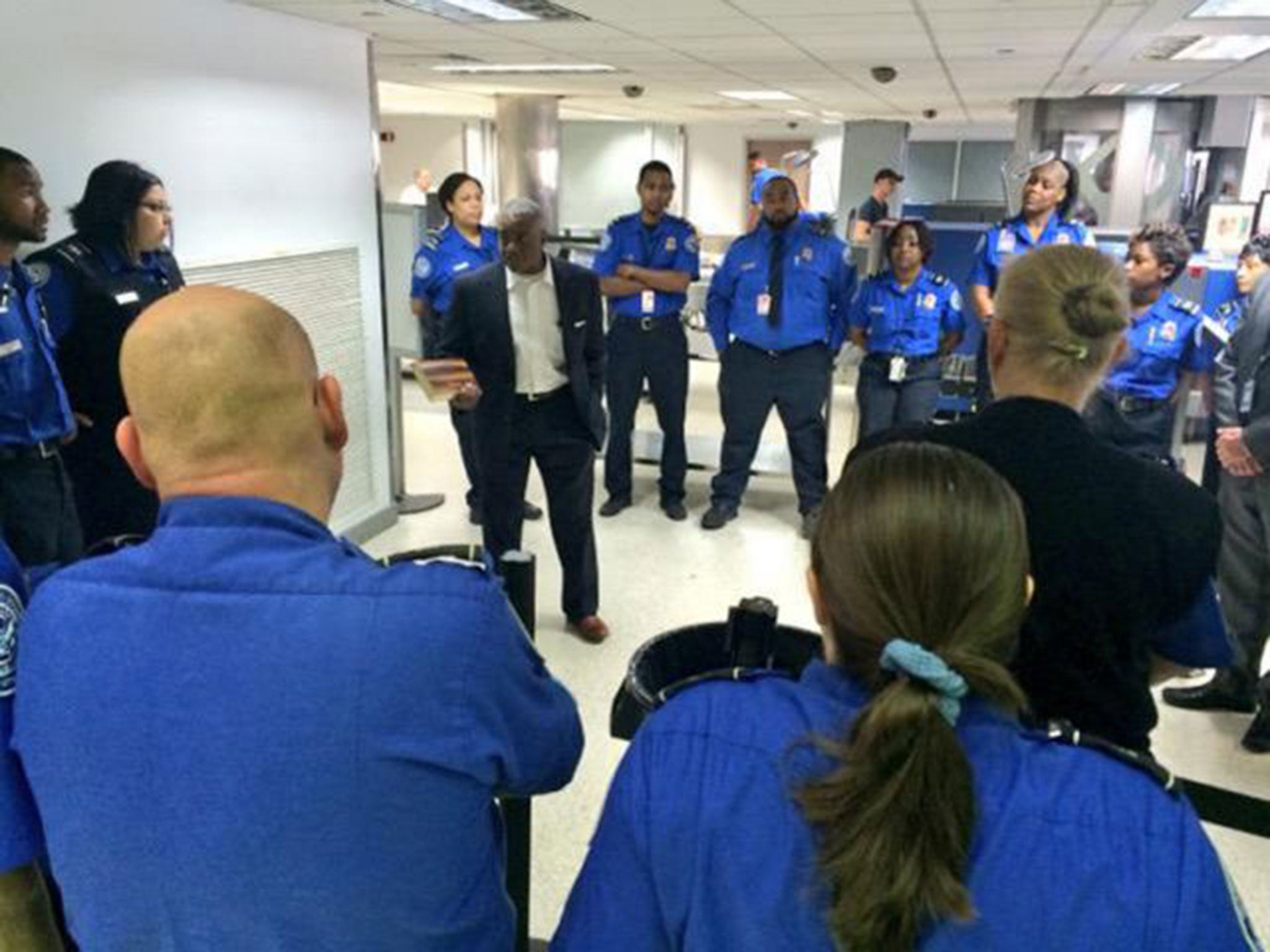TSA faces drastic review of airport screening practices after failing to spot weapons
An investigation found that TSA agents failed to spot fake weapons and explosives carried by undercover testers in 95 per cent of instances

The US Transportation Security Administration (TSA) faces a drastic review of its traveller screening practices after an internal investigation found glaring weaknesses in security checks at American airports. The investigation found that TSA agents at airport security checkpoints failed to spot fake weapons and explosives carried by undercover testers in 95 per cent of instances.
The tests, first reported by ABC News, were carried out at 70 US airports by so-called “red teams” from the Department of Homeland Security. The testers were able to get banned items through the security screening process at 67 of those airports.
Since the creation of the TSA in the wake of the 11 September, 2001 terrorist attacks, air travellers in the US have submitted to increasingly onerous security checks, which the report suggests are largely ineffective. In one instance, an undercover agent was stopped after he set off an alarm at the checkpoint, but allowed to continue on through the terminal after the TSA screener who patted him down failed to detect a fake explosive device taped to his back.
On Monday Homeland Security Secretary Jeh Johnson, whose department oversees the TSA, announced that airport security procedures would be revised. Melvin Carraway, the acting administrator of the TSA, has been reassigned and replaced by his deputy, Mark Hatfield. President Obama recently tapped US Coast Guard Admiral Peter Neffenger to be the next TSA chief.
Mr Johnson said TSA checkpoint agents would be retrained, their scanning equipment retested, and new technology sought to plug the security holes identified by the tests. Though he did not confirm the reported results of the investigation, he said he was taking its findings “very seriously”, adding: “The numbers in these reports never look good out of context but they are a critical element in the continual evolution of our aviation security.”
Jason Chaffetz, the Republican chairman of the House Oversight and Government Reform Committee, described the test results as “deeply alarming”. in a statement, he said, “After spending over $540m on baggage screening equipment and millions more on training, the failure rate today is higher than it was in 2007. Something is not working.”
Mr Chaffetz, an advocate of sniffer dogs to detect explosives and other weapons, said: “Government needs to recognise that the most effective solution is not always the most expensive one.”
Join our commenting forum
Join thought-provoking conversations, follow other Independent readers and see their replies
Comments
Bookmark popover
Removed from bookmarks